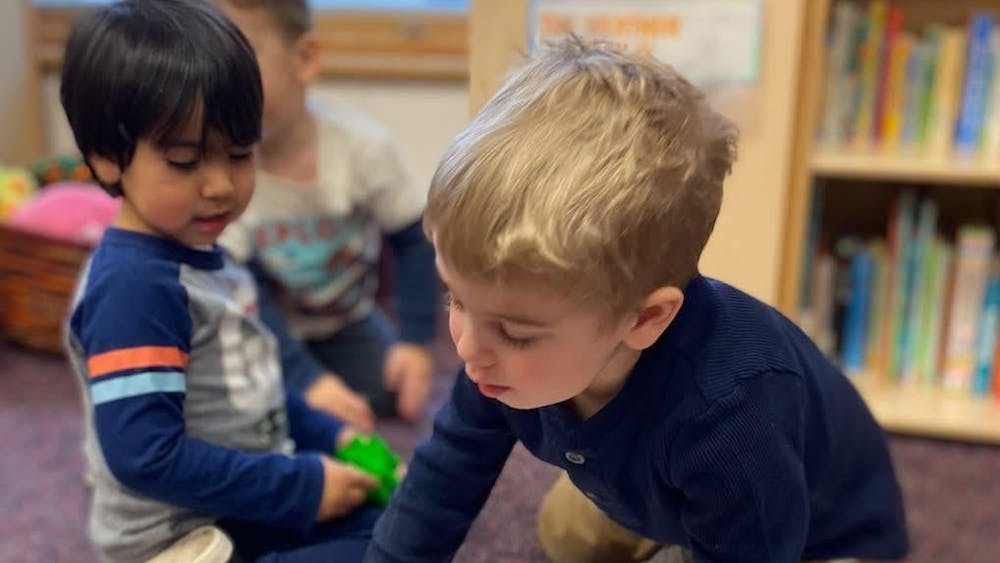
A group of comedians gathered in 213 DeBartolo Hall Monday night, telling jokes about their mothers, getting old and life as the middle child.
Student Stand-ups of Notre Dame (SSND) convenes weekly to work on ideas and performs about once a month in Washington Hall’s Lab Theatre. The club’s Halloween show was Oct. 26.
Senior and SSND president Aidan Tompkins said he found out about SSND on Activities Night during his first semester on campus. According to Tompkins, SSND’s table at the club fair wasn’t all that glamorous.
“All [SSND] had was a microphone and speaker, and they were just heckling people that were walking by,” he said.
Tompkins, who transferred to Notre Dame after one year at Villanova University, said he signed up for the club because stand-up comedy was something he sort of always thought about doing. He went to a few SSND meetings and started performing by the end of sophomore fall.
According to Tompkins, students who are interested in stand-up comedy are fortunate to have the structure of SSND because most comedians out in the real world get their start by going to open mics. At open mics in places such as New York City, comedians pay $5 for five minutes on stage, Tompkins said.
“I describe [open mics] as: it’s almost like you're auditioning for a role that doesn’t exist, and you’re doing it in front of all the other people who want that role,” Tompkins said. “Those are the people judging your audition. Sometimes it will be very supportive and great, and sometimes it [won’t be].”
The stand-up comedy club’s gatherings, compared with open mics, are great for somebody just starting out, Tompkins explained. He said SSND’s Monday night meetings are open spaces in which students can test the waters.
“It’s much better to bomb in here in front of like eight people who can then give you feedback to get better, if you really want to continue to work on that joke, than to do it in front of the [nearly 100] that are usually at our shows,” Tompkins said.
Although SSND performers don’t have to put up with the drunk hecklers of the New York City open mic scene, doing stand-up in Washington Hall comes with its own challenges, according to Tompkins.
“When you do [stand-up] at Notre Dame, you know you're going to see those people in the future probably,” he said. “There’s been times where I've been walking through DeBartolo … where I'm walking past a kid and I know he was at one of the shows that I just bombed at. And I'm pissed about it.”
On stage, Tompkins is also a little bit nervous about getting his supporters in the crowd to laugh, he added.
“A lot of people in the audience are friends of yours or friends of another group member and they are taking time out of their day to see you,” he said. “How I feel, at least, is: I want to make sure that their time investment is worth it.”
Tompkins said most SSND regulars don’t take the club too seriously.
“For a lot of people who come out to this, many of them are seniors who have always been like, ‘I want to try this,’ but have never done it,” Tompkins said. “And they just kind of give it the year.”
For those hoping to break into comedy professionally, stand-up is a very accessible point to do that, Tompkins added.
“All you need is a microphone,” he said.
At SSND’s meeting Monday night, students went around the classroom bouncing jokes, the good and the bad, off one another. They also watched a YouTube video of Baptist pastors receiving the Holy Ghost for comedic inspiration.









